Depression is a serious concern that affects millions of Americans. If you have a major depressive disorder or feel depressed, what you eat can significantly affect your emotional state. Eating healthy foods can help you feel better.
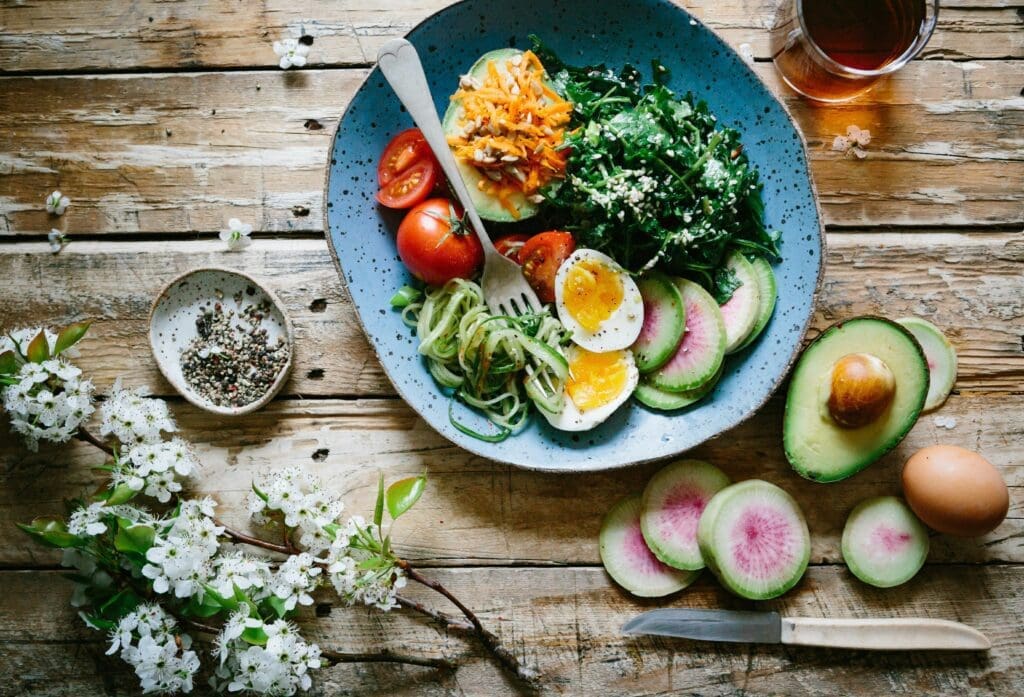
Depression: Foods That Help You Feel Better
According to experts, certain foods assist in recovery from depression. That is if they’re taken as part of the overall depression treatment. Often, this includes nutritional supplement treatment.
The key, say the experts, is to eat a nutrient-rich diet. Nutrients in foods help the body repair itself, help with growth, and boost overall wellness. Everyone needs a good supply of vitamins, minerals, carbohydrates, and even a small amount of fat. Deficiencies can minimize the body’s potential to work at full capacity and can even result in illness.
What foods, in particular, help in recovering from depression? Here are the food sources grouped by category.
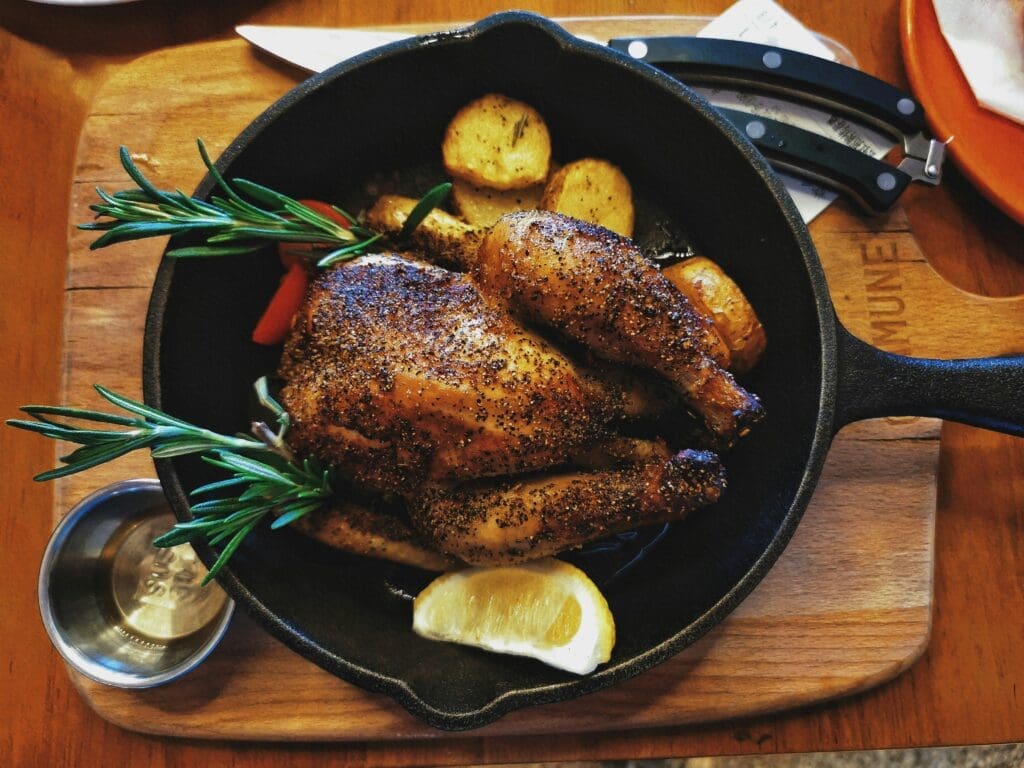
Eat Protein-Rich Foods for Increased Alertness
Turkey, chicken, and tuna are rich in tyrosine. This amino acid boosts dopamine and norepinephrine in the brain. The increase in these brain chemicals may make it easier to concentrate and feel alert.
Other protein-rich foods include:
- Beans
- Fish
- Lean beef
- Low-fat cheese
- Milk
- Peas
- Poultry
- Soy products
- Yogurt
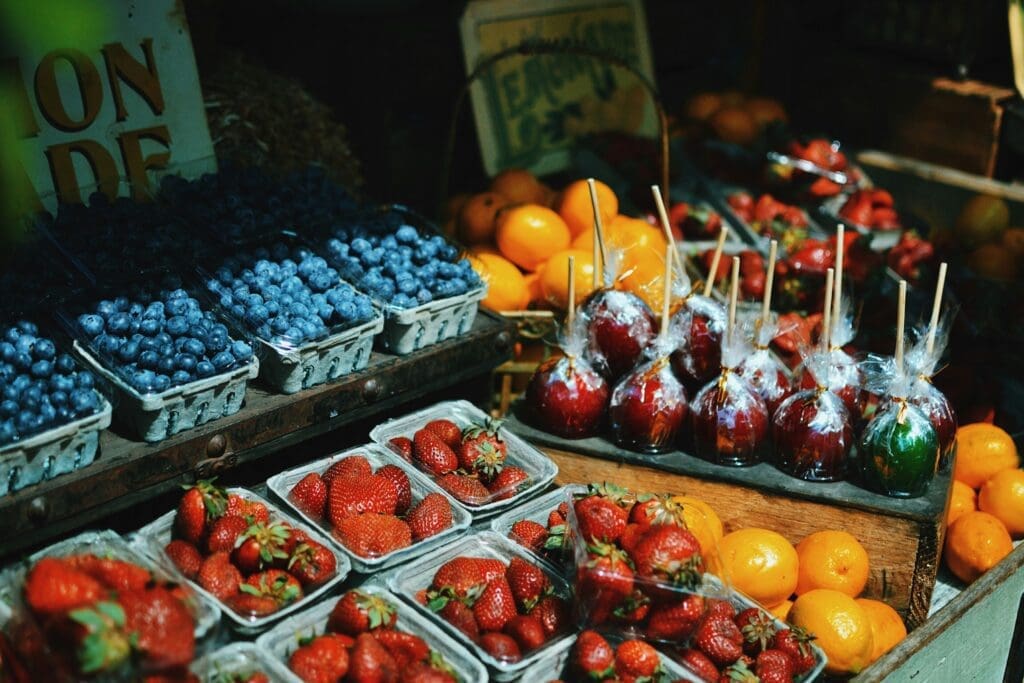
Essential Antioxidants to Combat Free Radicals
The human body produces free radicals during normal body functions. However, free radicals also contribute to aging and dysfunction. To limit free radicals’ destructive effects, eat foods rich in essential antioxidants such as beta-carotene and Vitamins C and E.
Food Sources for Beta-Carotene, Vitamins C and E
- Beta-carotene is found in apricots, broccoli, cantaloupe, carrots, collard greens, peaches, pumpkin, spinach, and sweet potato.
- Vitamin C is abundant in blueberries, broccoli, grapefruit, kiwi, oranges, peppers, potatoes, strawberries, and tomatoes.
- Vitamin E is found in margarine, nuts and seeds, vegetable oils, and wheat germ.
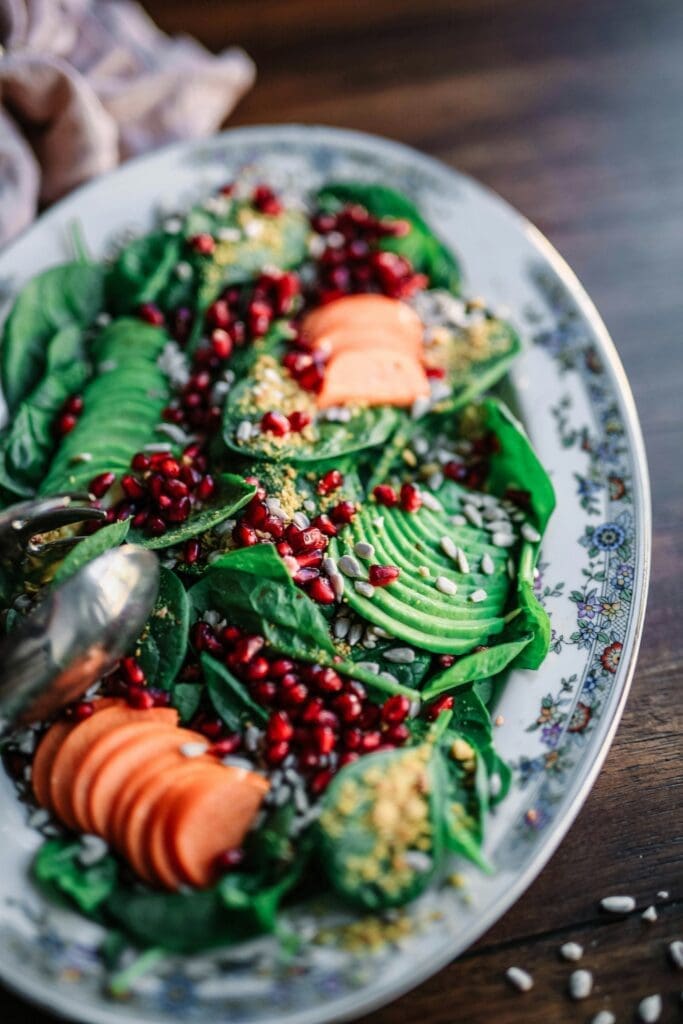
Overcome Depression: Add Foods Rich in Folate and Vitamin B12
One Spanish study found increased rates of depression in men, particularly smokers, as their intake of folate declined. The study found the same increase in depression in women, especially smokers and those physically active, but with a decreased intake of Vitamin B12.
Other studies looked at the link between increased rates of depression and these two vitamins. Does poor nutrient intake lead to depression, or does depression lead to people eating a poor diet? Researchers say that depressive symptoms are the most common neuropsychiatric manifestation of a folate deficiency.
Food Sources of Folate and Vitamin B12
What foods have folate? Experts recommend the Mediterranean diet, which includes many fruits, legumes, nuts, and dark green vegetables. Vitamin B12 is found in all lean and low-fat animal products, such as fish and low-fat dairy products.
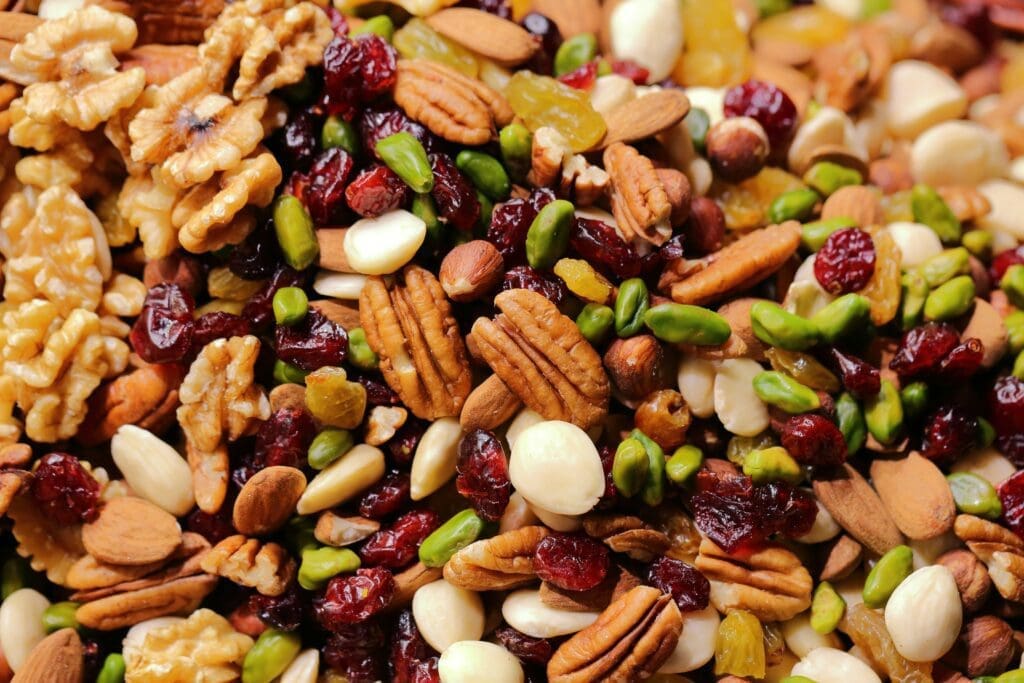
Selenium-Rich Foods Help You Cope with Depression
Studies show an association between low selenium intake and poorer moods. Selenium is a mineral essential for good health. It reduces anxiety and improves mood. Although selenium can be taken in supplements, too much can be toxic. However, getting sufficient selenium through foods rich in minerals is perfectly healthy.
Food Sources of Selenium
Foods rich in selenium include:
- Beans and legumes
- Lean meat, such as lean pork and beef
- Skinless chicken and turkey
- Low-fat dairy products
- Nuts and seeds (Brazil nuts, in particular)
- Seafood, such as oysters, clams, sardines, crab, saltwater, and freshwater fish
- Whole grains, including whole-grain pasta, brown rice, oatmeal
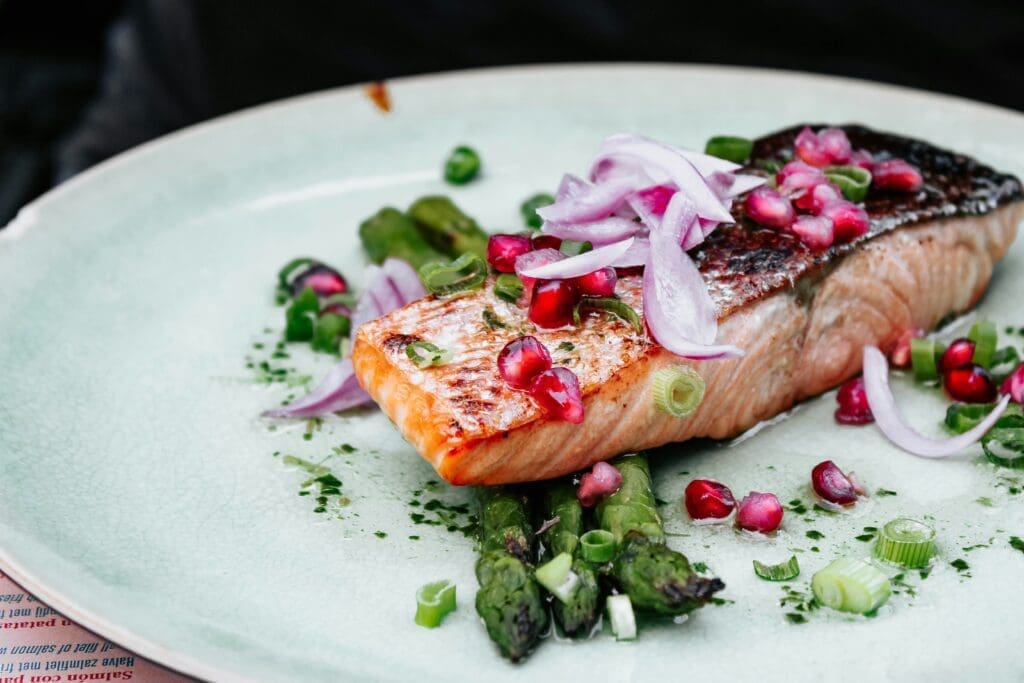
Omega-3 Fatty Acids Help You Feel Less Depressed
Much evidence supports the many health benefits of omega-3 fatty acids. Research links depression and lower levels of omega-3 fatty acids in the body.
- One study found a higher prevalence of major depressive disorder in societies consuming a small amount of omega-3 fatty acids than in societies eating an ample amount.
- In addition, those who rarely eat fish, which is rich in omega-3 fatty acids, are more likely to suffer from depression.
Food Sources of Omega-3
Food sources of omega-3 fatty acids include fatty fish, such as anchovies, mackerel, salmon, sardines, shad, tuna, flaxseed, and nuts. Alpha-linolenic acid is another beneficial type of omega-3 fatty acid. Its food sources include canola oil, dark green leafy vegetables, flaxseed, soybean oil, and walnuts.
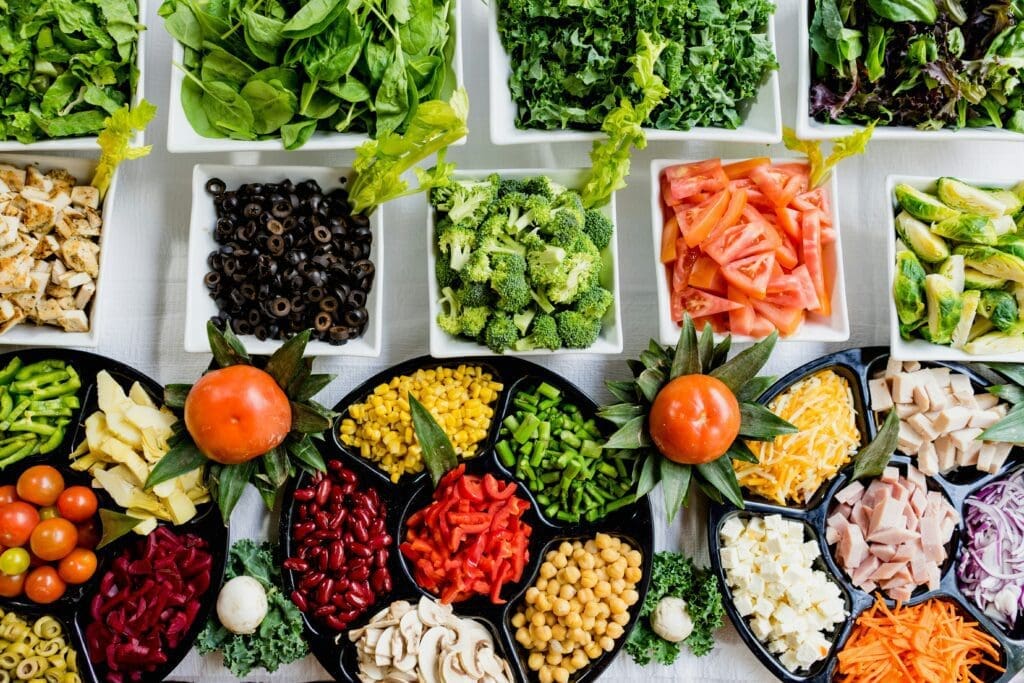
Eat the Right Carbohydrates
What is the connection between carbohydrates and mood, including loneliness? The answer is serotonin, the mood-elevating brain chemical. Do you ever intensely crave potato chips or other salty carbohydrates? This may be due to decreased serotonin. But instead of reaching for those chips, exercise caution.
- However, not all carbohydrates are bad. You’ll be fine eating smart carbohydrates, including fruits, legumes, vegetables, and whole grains. These provide the body with healthy carbohydrates and fiber.
- Finally, be sure to reduce your sugary food intake while you increase smart carbohydrates.





